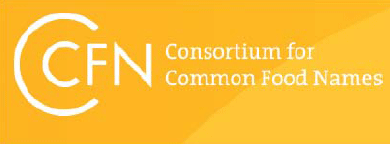
 Today, 177 members of the U.S. House of Representatives joined the call for U.S. negotiators to push back on the European Union's (EU) efforts to hamper U.S. production and exports by confiscating common food names, an abuse of the geographical indications (GIs) program. The House echoes similar statements made recently by U.S. Senators on the subject, demonstrating a unified effort to protect common cheese names such as "parmesan" and "feta", and meat names such as "bologna".
Today, 177 members of the U.S. House of Representatives joined the call for U.S. negotiators to push back on the European Union's (EU) efforts to hamper U.S. production and exports by confiscating common food names, an abuse of the geographical indications (GIs) program. The House echoes similar statements made recently by U.S. Senators on the subject, demonstrating a unified effort to protect common cheese names such as "parmesan" and "feta", and meat names such as "bologna"."This type of barrier to trade and commerce defies the fundamental goals of a trade agreement, and we urge you to work aggressively against the EU's efforts in this respect in order to preserve both domestic and export opportunities for these products," the House members state in a letter to U.S. Trade Representative Michael Froman and Agriculture Secretary Tom Vilsack.
"We thank these Representatives for this strong letter, which helps create a forceful, unified U.S. front against this flawed EU strategy to continue to erect even bigger, more significant agricultural trade barriers," said Jaime Castaneda, Executive Director of the Consortium for Common Food Names.
"This is nothing other than an effort to shut out competitors and block fair trade," said Castaneda. "The members of the Consortium are not against GIs, but we emphatically reject the EU's abusive policy of pocketing common food names under the guise of fake geographical indications, plain and simple."
In the letter, the House members urge the U.S. Administration to defend common food names, especially as U.S. negotiators work with the EU on the Trans-Atlantic Trade and Investment Partnership (TTIP). The Congressional Dairy Farmer Caucus co-chairs, led by Representatives Reid Ribble and Peter Welch, spearheaded the message to the Administration.
The EU's efforts are directed not just at the U.S. but also at dozens of other nations around the globe. In country after country, the EU has been using its free trade agreements (FTAs) to persuade trading partners to impose barriers to trade through restrictions on common food names.
For example, Canada agreed as part of its recently concluded FTA with the EU to impose new restrictions on the use of "feta" and other common cheese names. The EU has instigated similar trade barriers throughout Latin America, and is expected to pursue such restrictions in its negotiations with many Asian countries.
"We need to remind Europe that they do not own 'parmesan' and 'feta'," said Castaneda. "Many nations outside the EU have made award-winning parmesans, fetas and other cheeses for decades. In fact, some U.S. cheeses have beat out Europe's in international cheese competitions. And sometimes it is because of the dedication and marketing of food producers outside the EU that these products have become popular around the world."
When food producers are unable to use common food names in either domestic or international trade, it severely hampers their ability to compete in established markets. These actions also confuse consumers by removing available products from the market and suggesting that there is only one place to get a given product, when in reality many choices exist.
The full letter can be found here on the CCFN website, www.CommonFoodNames.com.
5.19.2014